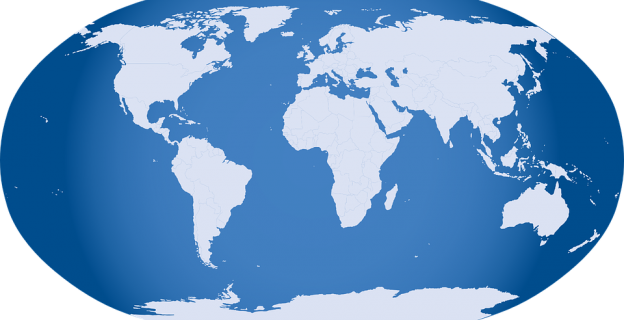MEXICO
At a press conference on June 10, Secretary of State Michael Pompeo discussed the evolving illegal immigration situation we face along the Mexican border. He stated that President Trump is doing exactly what he said he would do and is the first president in history to act effectively on his promise.
The US has agreed to Mexico placing 6,000 Mexican National Guard troops along the southern border of the United States to help stem the tide of illegal immigration. According to Pompeo, this is the “biggest effort to date” by Mexico.
Those crossing the U.S. southern border to seek asylum, he added, “will be rapidly returned to Mexico where they may await their adjudication of their asylum claims.” Past numbers of asylum seekers averaged a few hundred per day. In recent months this number has exploded with some crossing points experiencing several thousand individuals attempting to enter the United States daily. The numbers are so large that ICE reports only 30% of their resources can be devoted to criminal activity as 70% are assigned to handle illegal immigration now.
The Secretary attributes movement on the issue to President Trump’s announcement that he will impose a 5% tariff on Mexican goods if the government doesn’t take action. An entire team of Mexican negotiators arrived to begin resolving the dispute. He said: “It’s what prompted this series of conversations that took on a level of seriousness and a timed commitment that we were committed to getting done before the weekend. And, so it’s a fundamentally different commitment about doing this across the entire border at scale.” Washington plans to review the situation daily to ensure Mexico is making progress and keeping its commitment.
HONG KONG
The State Department is urging all sides to use restraint and to refrain from violence following protests in Hong Kong. The Spokesperson added that Washington believes “these peaceful protests are incredibly important” and that it’s important for the Hong Kong Government to “respect these freedom of expressions, respect the right of people to peacefully assemble.”
Proposed legislation in Hong Kong would allow authorities to subjugate Hong Kong residents to the Chinese government as it relates to some of their fundamental rights and potentially move those charged with a crime to mainland China for prosecution. Under the One Country-Two party System Hong Kong operates under a framework of a Chinese autonomous region.
IRAN
After the two recent attacks on oil tankers near the Gulf of Hormuz, the United States is not backing off pressuring the Iranian regime to stop terrorizing innocent people.
“Our position on the JCPOA,” according to the State Department Spokesperson, “has not changed.” Washington does not want Iran to get a nuclear weapon. “Whether it’s the JCPOA or our maximum pressure campaign towards Iran – holistically. It’s not – it’s certainly about a nuclear weapon, and I know that our European counterparts would like the Iranians to stay in the JCPOA. We certainly do not want them to have a nuclear weapon,” according to the Spokesperson.
NORTH KOREA
The United States is seeking a fundamental transformation of US-North Korea relations. With that the Trump Administration hopes to build lasting peace on the Korean peninsula.
The State Department Spokesperson pointed out that “We’re looking for a complete denuclearization. The President… maintains a warm relationship with Chairman Kim, and here at the State Department, we are ready and willing to continue engagement on working-level negotiations with the North Koreans.” In addition to a verifiable denuclearization the Administration says its looks forward to building a “bright economic future for the North Korean people.”
Washington is working to ensure that North Korean commitments, made a year ago, come to fruition. During this period the State Department confirmed economic sanctions will remain in effect.
CHINA
The United States is growing increasingly concerned that China’s “Belt and Road Initiative” is not simply about commercial projects that happen to be in strategically significant areas of the world, but that each one is a national security initiative designed by Beijing to appear as a commercial operation. Washington has reminded countries in China’s sightline that Beijing is attempting to “use state-owned enterprises to gain political influence and power.” Pompeo said that we “welcome that investment if it’s purely commercial and it’s designed for a noble end, but we have to be ever mindful of the national security risks presented….”
DARIA NOVAK served in the United States State Department during the Reagan Administration, and currently is on the Board of the American Analysis of News and Media Inc., which publishes usagovpolicy.com and the New York Analysis of Policy and Government. Each Saturday, she presents key updates on U.S. foreign policy from the State Department.
Illustration: Pixabay
